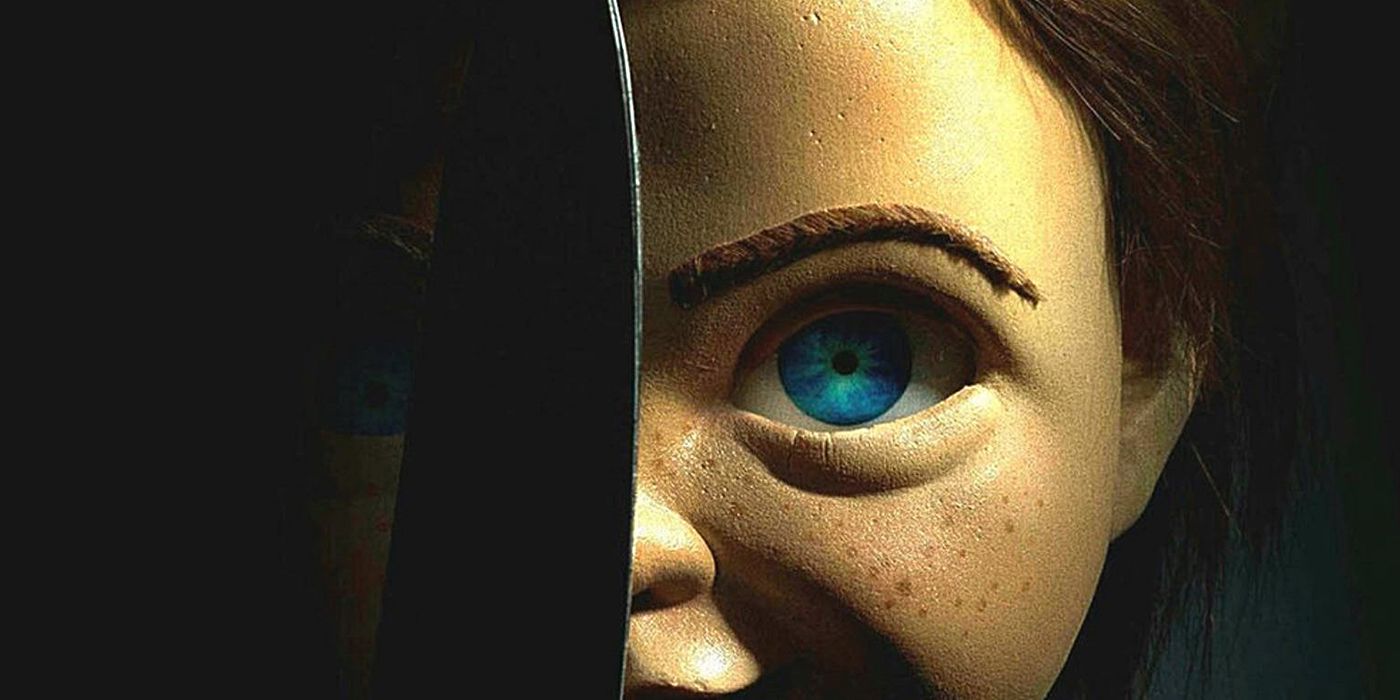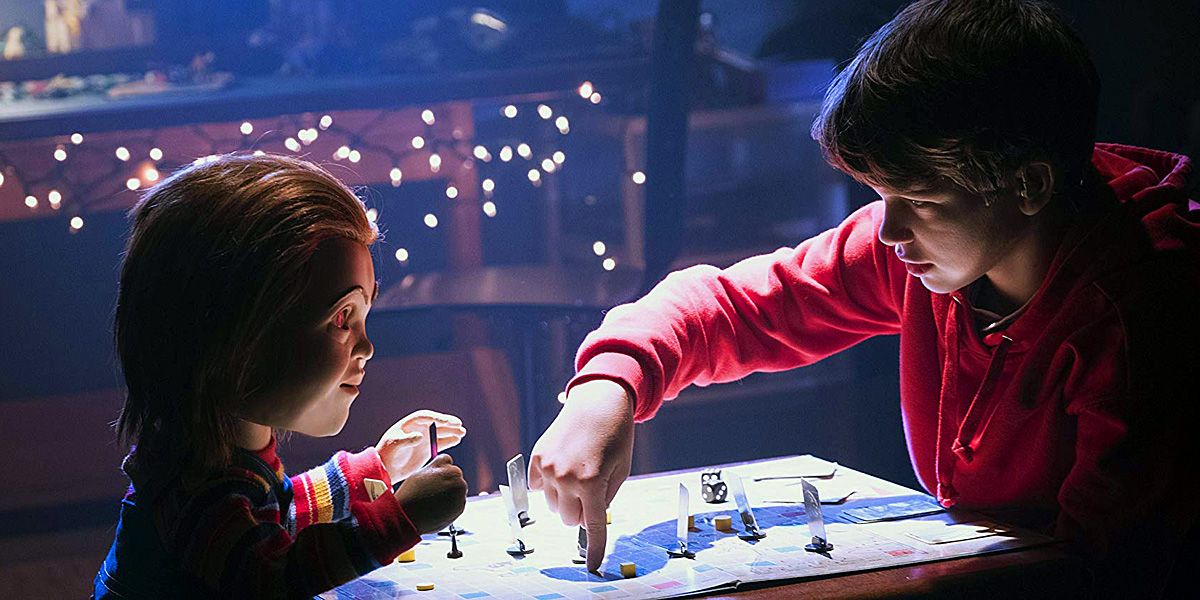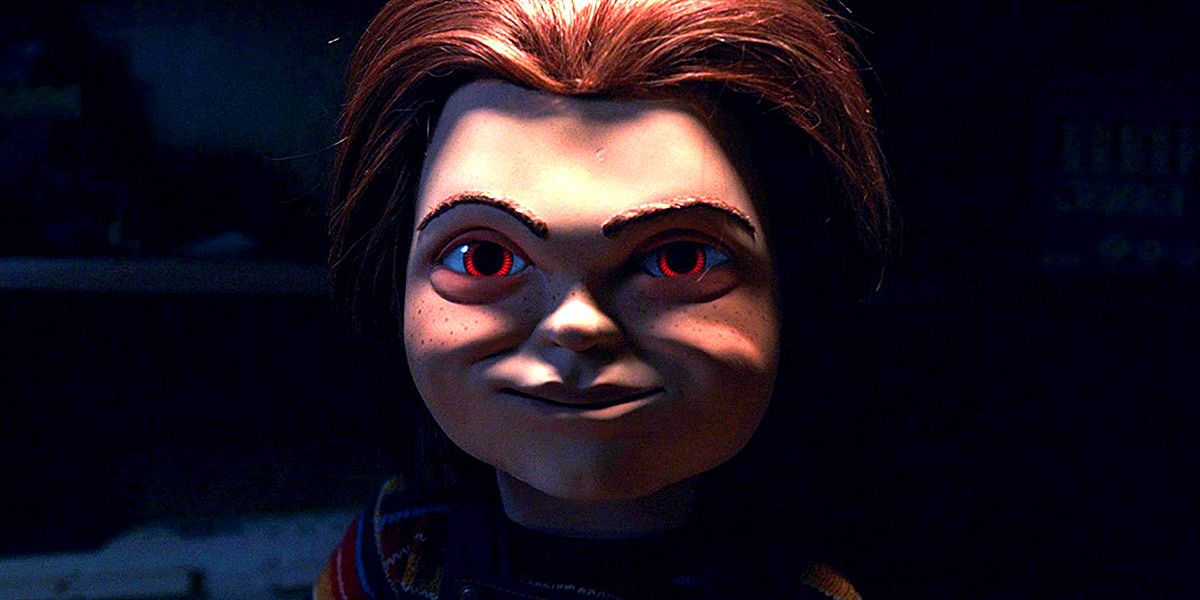Horror reboots have proven surprisingly tricky in recent years. In the past decade alone, remakes of Friday the 13th, A Nightmare on Elm Street, The Mummy and Suspiria have failed to connect critically or commercially. Those films took classic horror stories and tried to mold them into something new, losing the perverse sense of fun horror often enjoys along the way. Thankfully, that's a potential problem Child's Play avoids.
While director Lars Klevberg's remake doesn't reinvent the wheel, it's nevertheless a competent -- even creative -- horror film that manages to update the premise for a new era while never losing touch with the gonzo gory roots that made the franchise so memorable.
The new Child's Play starts in a similar place as the original: A lonely young boy receives a talking doll that proves to be far more malicious than it was ever intended to be. Instead of voodoo magic saving the soul of a Satanist serial killer inside the doll (the 1980s were weird, you guys), the film casts the Buddi dolls as walking Alexas for modern smart homes.
He's intended to connect to all of your smart devices, serving as a hub for all of that technology. The doll learns from its owners in an attempt to be their "best buddy," much like how our devices adapt to us. But when a bitter factory worker messes with the code for one of the dolls, it becomes violent, spiteful and possessive to an absurd degree toward its owner and "best friend," Andy (Gabriel Bateman).
Despite the film's criticism of our obsession with technology, Child's Play never forgets that it's a horror movie about a doll stabbing a bunch of people. It's almost gleeful in the way it devises Chucky's murders, harking back to the splatter gore that defined the era of the 1988 original. This Chucky may be able to control drones now, but he still thinks to tie knives to them.
In a nice but understated touch, the darker impulses of the doll are defined by the casually mean-spirited nature of teenagers. It learns to curse from them, and how to kill from their gleeful reactions to horror movies. The film is firmly aware of what it is in that regard, and the genuinely creative and gruesome murders stand up to the best the franchise has ever achieved.
The film largely works thanks to Klevberg's direction and the committed performances of the uniformly strong cast. Aubrey Plaza and Brian Tyree Henry are as stellar as always in their roles as Andy's mother and their kind neighbor, respectively. Mark Hamill revels in the role of Chucky, reminding us why he's one of Hollywood's best voice actors.
Hamill instills Chucky with moments of hurt confusion, making the eventual transformation into a demented killer all the more effective. While he delights in the openly evil Chucky, it's a far cry from the original sadistic version, or even Hamil's previous villainous roles. But the MVP of Child's Play is Bateman, who imbues Andy with just the right mixture of adolescent frustration and panicked resolve.
Even minor characters like Fayln (Beatrice Kitsos), Pugg (Ty Consiglio), Shane (David Lewis) and Doreen (Carlease Burke) are well-performed, giving their characters dimensions that the film otherwise doesn't have time to explore. The film runs a tight 90 minutes, with no wasted scenes. That means the script, by Tyler Burton Smith, has to sacrifice expansion on certain subplots and characters, sometimes to the point of confusion. The doll settles on the name "Chucky" for no real reason beyond that's what the character is called in previous incarnations.
The film sets up themes about abandonment, culpability and how we try to process anger during the first act. But when the story kicks into high gear and goes full slasher, those ideas are pushed aside to make way for beats necessary to arrive at the grisly and bonkers third act. They're not forgotten, but Child's Play is clearly far more concerned with going out on a bloody bang than spending that time on character development or societal messages.
Maybe that's a good thing. The film's climax is tense, but exciting in a way many classic slasher films should be, trapping the cast in a corner with the monster but giving them the chance to finally fight back. This is a film that feels undeniably indebted to the slasher genre while still completely recontextualizing one of its most memorable entries. It doesn't waste time trying to explain itself or why this premise is scary, it just creates a world and then uses it to terrify its characters (and the audience).
Child's Play begins like an episode of Black Mirror and ends like an unabashed slasher film, managing to meld both tones surprisingly well. It might not be groundbreaking, and if you're not a horror fan it may be skippable, but if you enjoy the genre (and especially if you love slasher films), then you'll enjoy this purposeful and well-constructed throwback.
Based on characters by Don Mancini, Child's Play is written by Tyler Burton Smith and directed by Lars Klevberg. Scheduled to release on June 21, the film stars Aubrey Plaza, Mark Hamill, Brian Tyree Henry and Gabriel Bateman.



